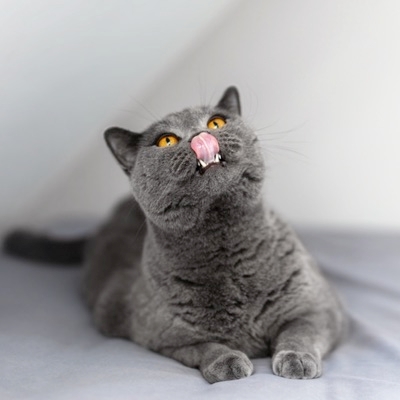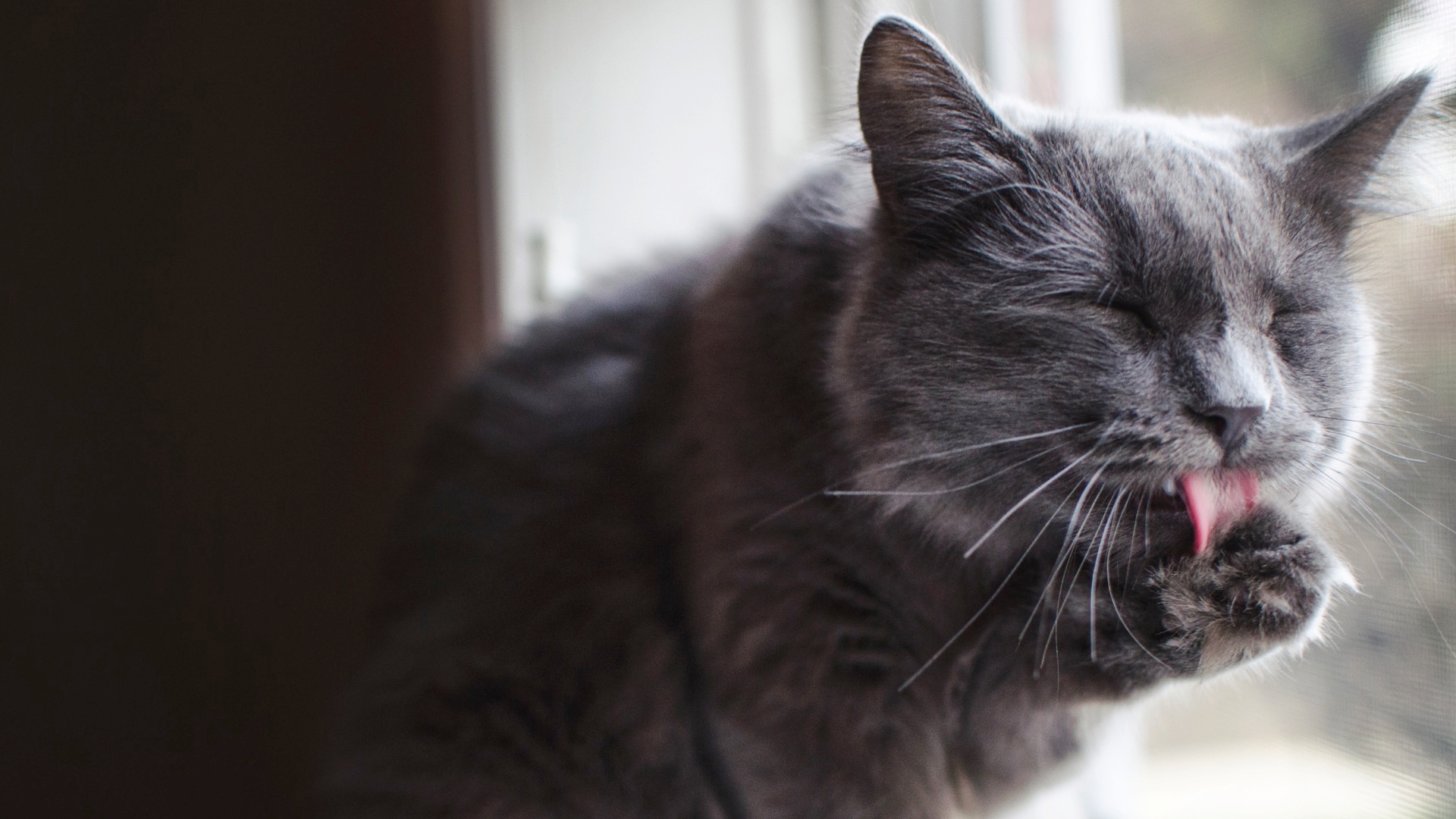Cats And Excessive Licking:
Summary:
Cats lick to keep themselves clean, rid themselves of varmints like fleas, cool themselves, absorb Vitamin D, and release stress. If a cat's licking is the symptom of a health problem or if the licking is causing a health problem, then the kitty must be taken to a veterinarian soon!


Cats lick to keep themselves clean, rid themselves of varmints like fleas, cool themselves, absorb Vitamin D, and release stress. If a cat's licking is the symptom of a health problem or if the licking is causing a health problem, then the kitty must be taken to a veterinarian soon!
There are several medical reasons for excessive licking. It could be a neuropathy problem. For example, a nerve receives a signal which tells the cat to lick. It could be encephalitis, a brain perception disorder, a soft tissue or bone inflammation problem, or an allergic skin disease. A cat licks odd things such as window panes, walls, or cement walks may be anemic, a symptom of a disease such as feline leukemia. If you suspect a medical problem, see your veterinarian immediately.
Cats lick themselves when they are infested with parasites such as fleas. Regular grooming with a flea comb should be enough to control the flea problem. An occasional bath with a flea shampoo will kill the fleas and remove dander (dried saliva) that causes human allergies.
An allergic reaction to inhaled allergens can also cause excessive licking.
It is estimated that thirty-five percent of all cats suffer from food allergies which can result in excessive licking. If the diet is suspect, try one of the commercially prepared non-allergy cat foods. Though not carefully researched, it is also thought that a nutritional deficiency might cause excessive licking. Senility will sometimes cause a cat to lick. In this case, you may have to live with the licking. For the older cat, frequent grooming with a comb or brush will reduce the hazard of hairball formation.
A bored cat, a cat weaned too early, and a cat under stress will lick excessively. Get another cat for the bored one, or give her more playtime. Disrupt the early-weaned licker with playtime and learn to live with her possible continual licking of a particular soft piece of material. For the cat under stress, remember that she likes a quiet, undisturbed environment and needs lots of love and attention. Eliminate any form of physical punishment for misbehavior, as this creates tremendous stress.
Finally, some cats lick us because they are saying, "I like you!" or "You are the boss." They also go into what seems like an urgent licking mode to cover up their embarrassment after accidentally falling off the chair. These are normal and funny licks and should be readily accepted.


